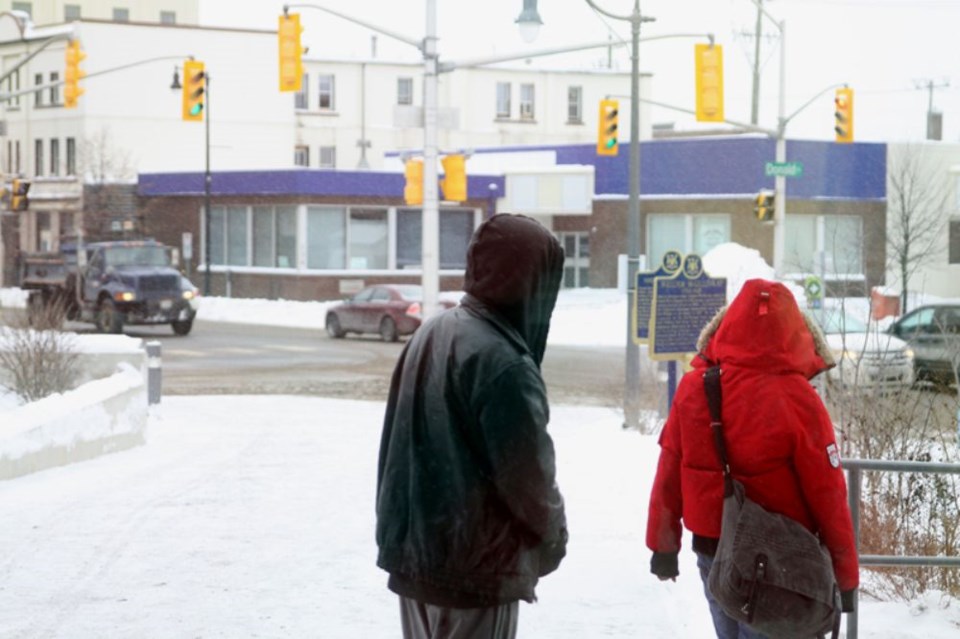THUNDER BAY -- For the next 24 hours, Thunder Bay will ask its homeless to stand up and be counted.
The city's first-ever homeless count known as Point in Time began at 6 p.m. Saturday.
Volunteers are fanning out across the city's vulnerable areas to count those who identify as homeless, living both sheltered and unsheltered.
The count will paint a picture of the total number of homeless and under-housed people in the community, as well as record demographics such as age, gender, veteran status and Indigenous identity.
The data gathered will then be used to direct government resources to areas of greatest need and to connect individuals with those specific backgrounds to targeted supports that can help them achieve stable housing.
"Homelessness affects anyone," said Thunder Bay Indian Friendship Centre executive director Charlene Baglien as she recounted a distant chapter in her own story when she slept outside to escape a difficult family life.
"They are our brothers, they are our sisters, they are our children, they are our families. By gathering this data and sharing it with the community, it's our intention to continue to work together to make a difference in the lives of people."
The few statistics that are already available demonstrate the urgency of the city’s homeless crisis.
In 2015, 17 people who were known to Shelter House died before they could be placed in adequate housing. Toronto is a city 26 times larger than Thunder Bay with over 50 times more homeless shelter beds and its social services recorded 43 known homeless deaths.
“It’s an epidemic of homelessness,” said Shelter House acting executive director Brad King, citing the shelter housed 832 unique people last year alone.
“We recorded, at one point, 25 per cent of people we’d interviewed for one particular project had died. If 25 per cent of the people you’d worked with within a period of time, you’d consider that to be an epidemic and homelessness certainly is in our community.”
This weekend also launches Thunder Bay's participation in the 20,000 Homes Campaign, a national movement of communities working together to house 20,000 of Canada's most vulnerable homeless people by July 1, 2018.
Where the count is anonymous, the campaign will identify people by name and assess their vulnerability in order to prioritize their housing needs.
Canadian Alliance to End Homelessness president Tim Richter was among those who spoke at City Hall as the event kicked off. Richter compared homelessness to disaster relief as he declared it a solvable issue.
 “I’m here to witness the beginning of the end of homelessness in Thunder Bay,” he said.
“I’m here to witness the beginning of the end of homelessness in Thunder Bay,” he said.
Thunder Bay will join other Canadian municipalities in instituting Housing First practices, a proven approach to individualizing care and restoring housing while accommodating social and medical challenges.
“To me, what we’re doing this weekend is more than a research project, more than a study or an awareness exercise. This is a homelessness intervention,” he said.
“It’s not enough for us to count. We have to act and there has to be an urgency to that action. You’re going to survey people tonight and tomorrow who are going to die unless you house them – and soon.”
